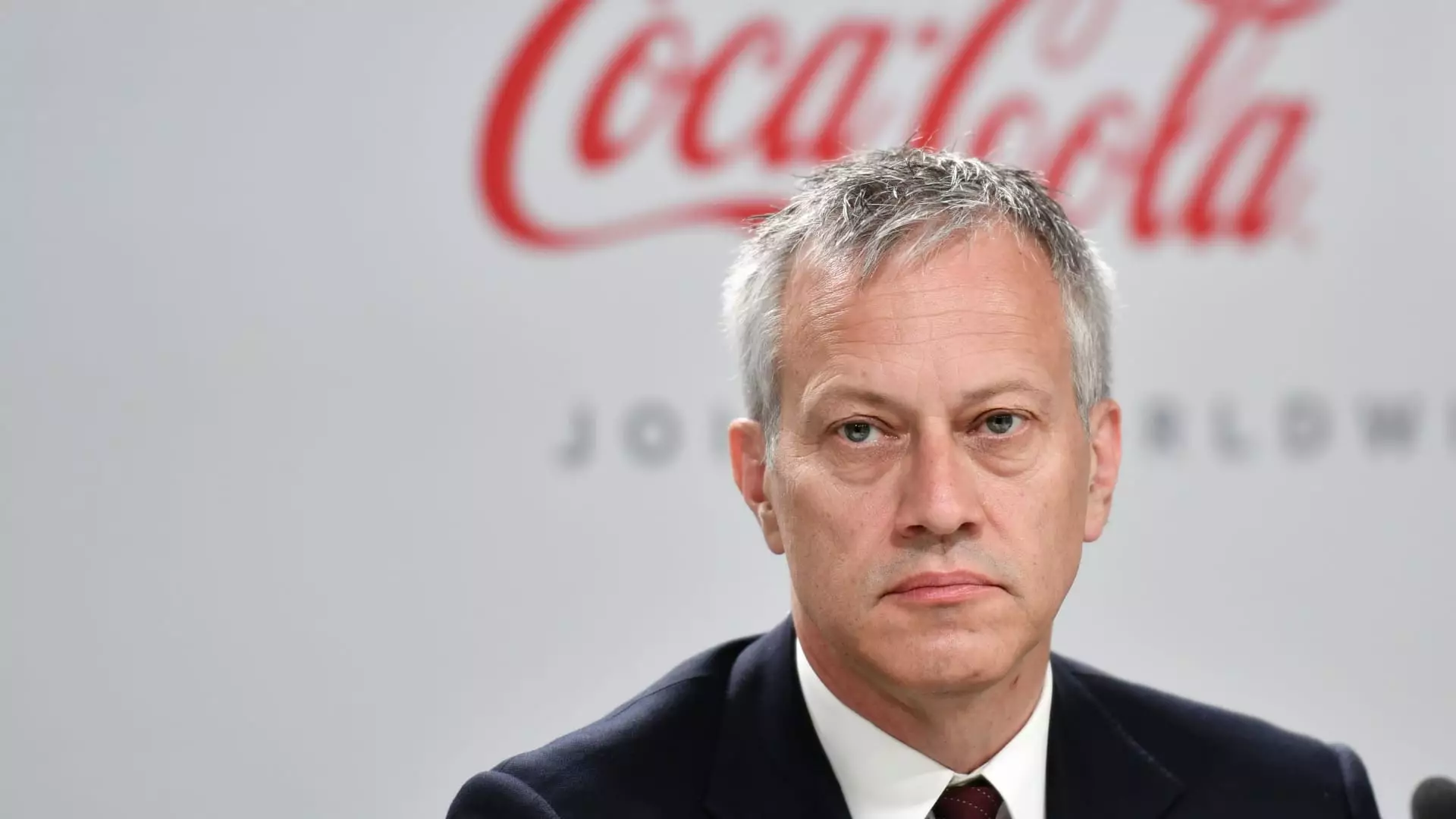In a world where corporate partnerships can significantly influence market dynamics, the recent E. coli outbreak linked to McDonald’s has presented a unique challenge for The Coca-Cola Company. Despite this health scare, CEO James Quincey has expressed confidence that the situation will not adversely affect Coca-Cola’s sales. During a recent earnings call for the third quarter, Quincey remarked on the current media coverage surrounding the outbreak, stating, “At this stage, it’s not going to be a large, significant impact to the business.” His reassurance came amidst the storm of health concerns and potential ramifications that could arise from the outbreak.
The outbreak, which has been traced to McDonald’s Quarter Pounder burgers, has prompted the Centers for Disease Control and Prevention (CDC) to step in, linking the illnesses reported in ten states to specific ingredients in the burgers. As a long-standing partner — the largest restaurant client for Coca-Cola — the ripple effects of this incident have drawn attention not only for immediate sales implications but also for the enduring relationship both companies share.
Since their partnership began nearly seventy years ago, Coca-Cola and McDonald’s have crafted a symbiotic relationship that has bolstered their respective positions in the fast-food industry. Coca-Cola’s decision to assist McDonald’s during this crisis highlights their commitment to each other as business partners. Quincey articulated this sentiment by declaring, “We’re a big partner of McDonald’s; they’re a big partner of ours,” emphasizing the collaborative nature of their business dealings.
Only recently, Coca-Cola enhanced McDonald’s marketing efforts by contributing funds to promote their value meals, which are vital for enticing customers amidst declining consumer spending habits. The current E. coli situation occurs against a backdrop of softer sales in restaurants, further complicating the dynamic of consumer trust and brand loyalty.
In response to the outbreak, McDonald’s has taken decisive action. They have temporarily pulled Quarter Pounders from their menu in several states and instructed local restaurants to remove slivered onions from their offerings. This prompt response aims to demonstrate their commitment to customer safety. Joe Erlinger, President of McDonald’s USA, asserted, “We are very confident that you can go to McDonald’s and enjoy our classics,” reiterating their ongoing dedication to maintaining quality and safety standards even amidst troubling circumstances.
The elimination of shortcut ingredients, combined with assurances about food safety, are critical steps in controlling the narrative around the incident. These moves not only work to maintain confidence among consumers but also safeguard McDonald’s brand reputation through proactive crisis management.
Despite the complexities brought on by the outbreak, Coca-Cola’s performance has demonstrated a level of resilience. Their recent third-quarter earnings surpassed Wall Street expectations, aided by strategic price increases and marketing initiatives aimed at offsetting slower consumer spending. However, the market has reacted cautiously, as evidenced by a decline in Coca-Cola share prices by over 2% in early trading following the outbreak news.
This fluctuation points to a general apprehension among investors about the potential spillover effects of an outbreak on iconic partnerships and the subsequent impact on consumption habits in fast food and beverage sectors alike. With consumer behavior shifting towards budget-friendly options, brands are attempting to retain customer loyalty through discounts and value meals.
The road ahead for both Coca-Cola and McDonald’s will require a careful balancing act between managing immediate challenges and nurturing their alliance for long-term success. Their ability to weather this storm will depend on effective communication strategies, consumer trust restoration, and a continued focus on collaborative innovation.
As fast-food giants navigate these external challenges, they must prioritize both safety and customer satisfaction to remain competitive. The next steps will reveal how well Coca-Cola and McDonald’s can adapt, not only to the crisis at hand but also to the evolving landscape of the fast-food industry.

